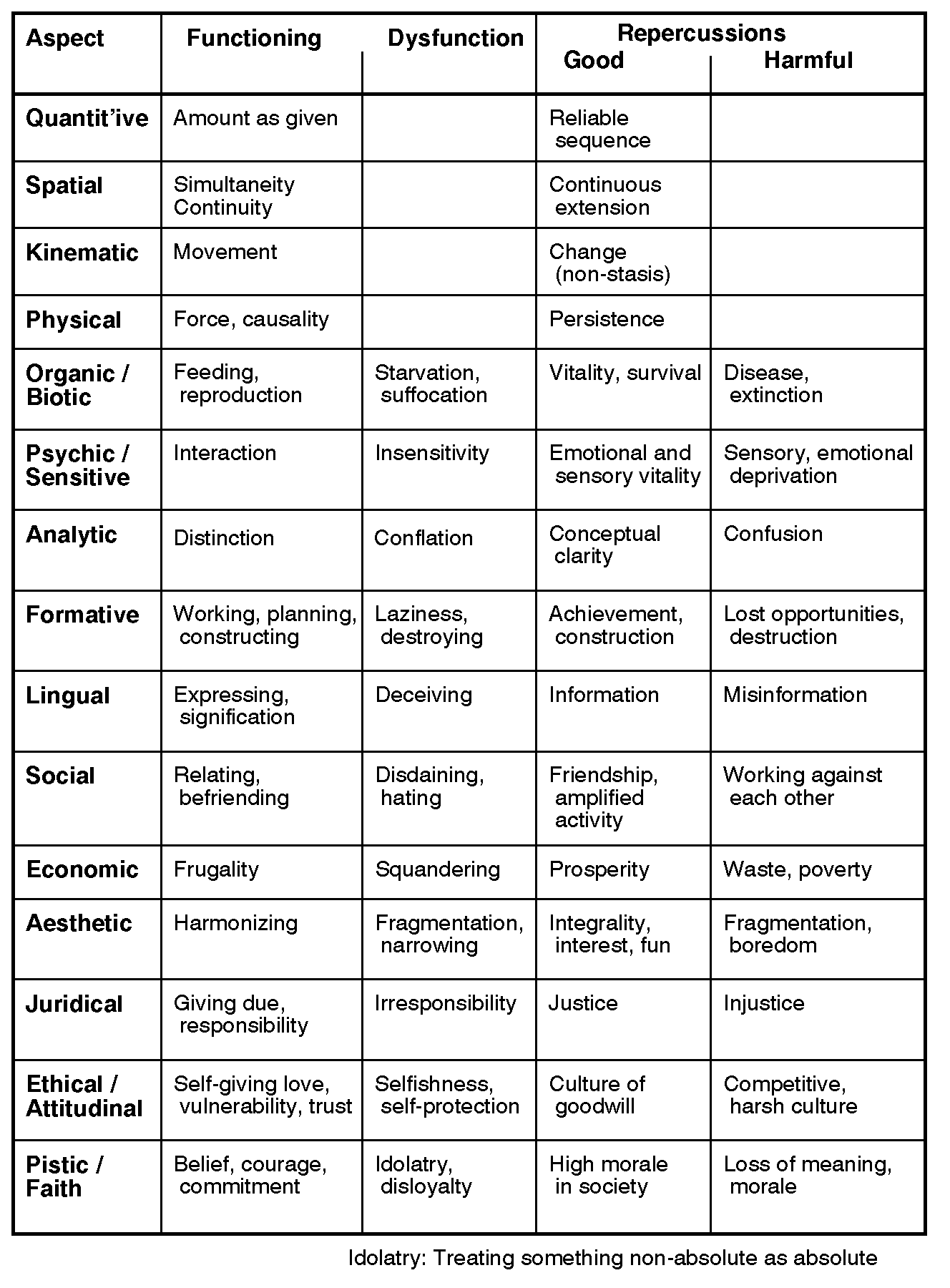
So the idea of Good starts from there: what we might call a Multi-aspectual Overall Good.
In a way, we might say that the jural aspect enables a kind of zero-sum rewarding or punishment, to curb evil, where as the ethical aspect, whose kernel is self-giving love, enables a positive-sum generation of extra Good that was not there before. Someone does evil, and the good person returns good for that evil. (x Christians believe that God is of this character, not merely a just Judge, but one full of mercy and grace, who returns Good for Evil. In short, as the early Christian writer John put it, "God is love." x)
One answer I find useful is that each is a contribution to Multi-aspectual Overall Good meaningful in one aspect (see The Uniqueness and Contribution of Each Aspect). Each aspect makes possible its distinct, unique kind of goodness that contributes to the Overall. For example, the physical aspect makes possible some kind of reliable causality of energy, forces, fields, etc. The biotic aspect enables the good that is organisms which can retain their integrity as organisms despite a fluctuating environment - which is the root of good health and ecological goodness. The social aspect enables social good. And so on. Each aspect introduces a kind of Good into Reality that earlier aspects know nothing about, and all kinds of Good, when working together well bring about Multi-aspectual Overall Good. Here is a table with a brief word for each kind of Good, both as good functioning and good repercussions of the function, and in most aspects their evil or harmful counterpart.

In all these, what might be called moral good could be seen as Good meaningful in the ethical aspect, as extra goodness of any kind in general that is generated by the good functioning of (humans in) Creation.
This page, "http://dooy.info/good.html", is part of The Dooyeweerd Pages, which explain, explore and discuss Dooyeweerd's interesting philosophy. Questions or comments are very welcome.
Compiled by Andrew Basden. You may use this material subject to conditions.
Written on the Amiga with Protext, in the style of classic HTML.
Created: 2 July 2025 Last updated: